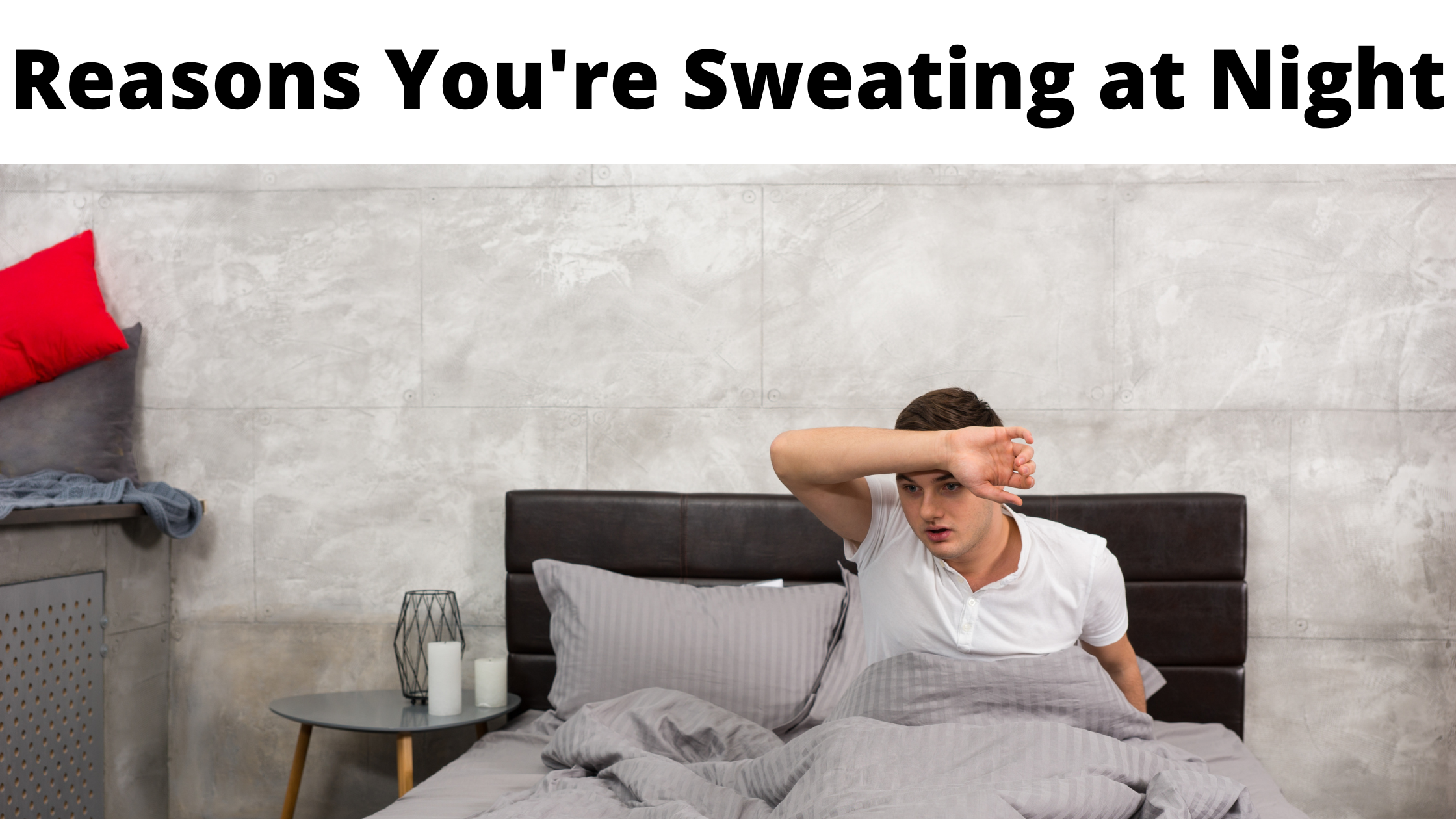
Night sweats are extremely discomforting. They make you feel gross and can interrupt your sleep. Getting good sleep is essential for memory, focus, mood regulation, and overall well being. It's hard to do this when you can feel yourself sweating and wake up feeling drenched. Some of the causes for night sweats are fixable, but others may be an underlying sign of something else that is happening. Continue reading for the reasons you may be sweating at night.
Drinking before bedtime
Although you may think that drinking at night helps you get better sleep because of how tired you get and how deeply you think you are sleeping, drinking before bedtime can actually be one of the reasons you're so hot at night. Alcohol relaxes the airways which can make breathing extremely difficult. Also, it can act as a stimulant and increase your heart rate, leading to an increased internal temperature. Limiting alcohol intake before bedtime can truly help lower your temperature at night.
Stress levels
If you are anxious or stressed, then going to sleep can be quite a challenging task. If you are chronically stressed or anxious due to an anxiety disorder, then these feelings may build up way before bedtime because you know how hard going to bed is, and how tired you feel in the morning. Learning to relax before bed may be the key to lowering your body temperature so you can get a good night's sleep. Find some time to wind down by doing activities like meditating, reading a book, spending time with loved ones, etc. Make sure your bedroom is calming with cool colors, relaxing aromas, and cleanliness. Finally, talk with your doctor if it is becoming too big of an issue.
Evaluate your sleepwear and sleep environment
You may just be too hot at night because your clothes or environment are not allowing for proper circulation. Loose fitting cotton is the best fabric to sleep in. It's breathable, affordable, and very comfortable. T-shirts and shorts, or light pants are the best options when it comes to picking out your pajamas. In addition to what you're wearing, your room should be below seventy degrees, with circulating air, if possible. Try lowering your thermostat throughout the night, or investing in a fan to keep yourself cool.
Medications
Your medications may actually be the reason that you are struggling with your body temperature. Certain medications can interfere with your body's temperature regulator in the brain. These medications include:
- Antidepressants
- Antiretrovirals
- Hormone therapy drugs
- Hypertension drugs
- Hypoglycemia medications
If you take any of these medications, then maybe talk with your physician to see if they are the root to your night sweats. If possible, they may switch you to something with less side effects.
Menopause
Another common cause of night sweating is menopause or perimenopause. A majority of women have night sweats as they are going through this hormonal change. Common ways to reduce these symptoms are to avoid triggers, keep your bedroom cool and sleep in light clothing, cool yourself down if you do wake up and are hot, and adjust your lifestyle. Alcohol spicy foods, coffee and smoking can all be triggers, as well as obesity and stress levels. Finding ways to address all of those can potentially help reduce the amount of sweating you're doing.
Sweating disorder
Sweating disorders, or hyperhidrosis, is fairly rare, but if none of the other things on this list describe a potential reason you are sweating as hard as you are, then it may be the culprit. Normally, this means that you sweat a lot throughout the day as well, especially when doing something that takes a lot of effort. If you do have hyperhidrosis, then you can invest in good deodorants, opt for loose fitting and quick drying clothing, and avoid heavy shoes and tight socks.
Underlying medical issue
Unfortunately, some causes of night sweats are due to an underlying medical issue or malignancy. Your body has trouble regulating your core temperature because some metabolic process is driving up the amount of energy your body has to produce. Some examples of these include:
- Autoimmune disorders
- Cancers
- Depression
- Heart disease
- HIV/AIDS
- Hyperthyroidism
- Obesity
- Prostate cancer
- Serious infections
- Sleep disorders
If you think any of these could be possibilities, please consult your physician to find out more testing and diagnostic procedures. You can contact your primary care physician or click the orange button below to take a free online sleep test and get in contact with our sleep health professionals.
https://www.houstonmethodist.org/blog/articles/2020/feb/night-sweats-7-reasons-you-may-be-sweating-at-night/

